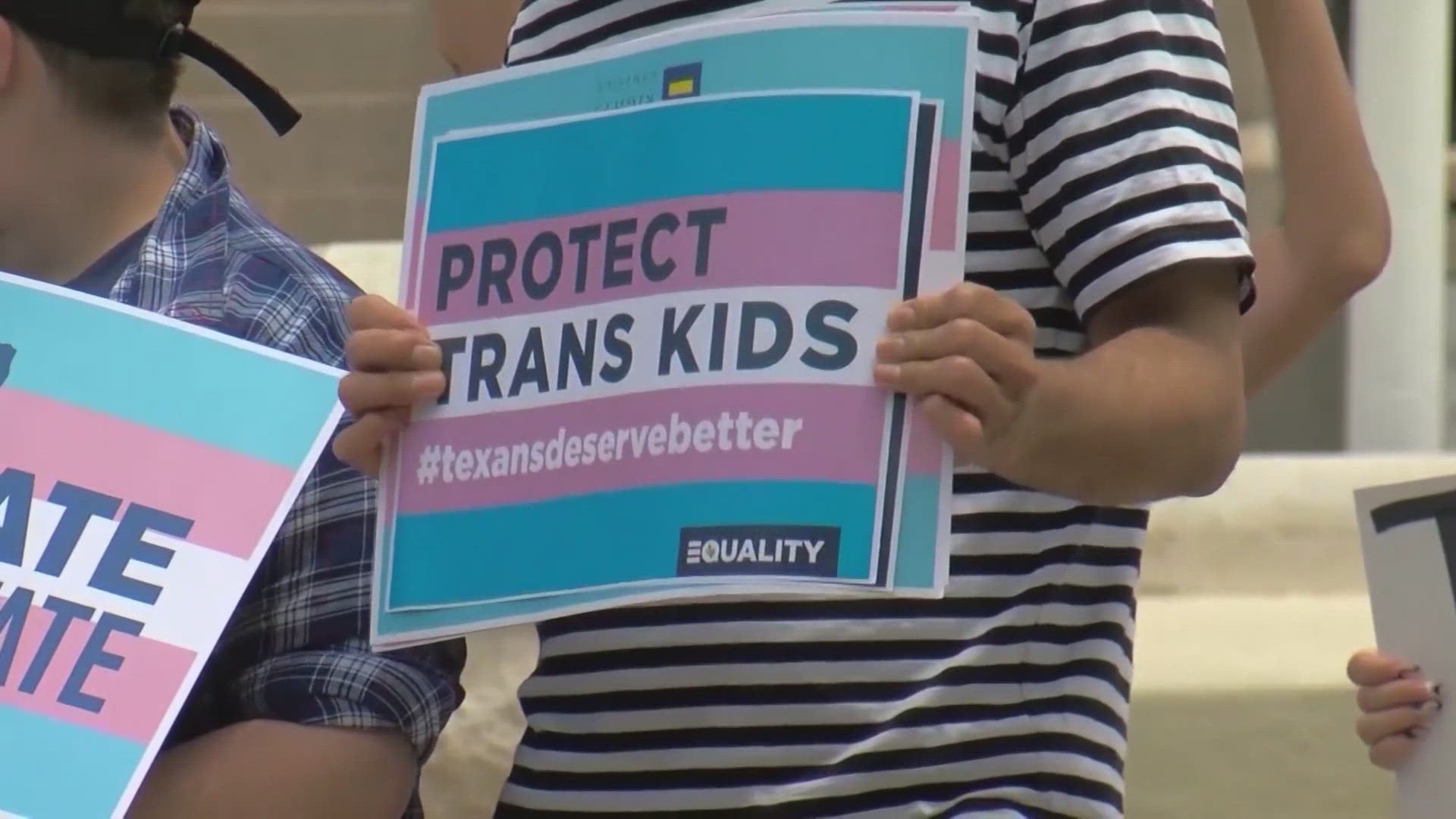SAN ANTONIO — The Texas Supreme Court heard oral arguments Tuesday morning on litigated legislation banning gender-affirming care among children, months after a district court judge deemed the law unconstitutional.
Senate Bill 14 passed during the 2023 legislative session following immense backlash from the LGBTQ+ community.
The legislation prohibits transgender youth from receiving puberty blockers and hormone therapies, which opponents of the legislation argue are crucial to treating those experiencing the impacts of gender dysmorphia. Opponents of SB 14 say such treatments are lifesaving for trans youth dealing with mental health conditions.
A lawsuit was filed July 2023 on behalf of five Texas families with transgender children, arguing the law violates a parent’s right to provide medical care for their children while discriminating against the medical professionals’ right to conduct their work.
“It deprives transgender youth of equal rights and equal protection, it deprives the doctors of their vested property interests in their medical license without due course of law,” said Kennon Wooten, an attorney representing the plaintiffs. “We’ve got the vast majority of the medical community saying that the medical care that’s been banned is safe.”
In August, Judge Maria Cantu Hexsel in Travis County, granted a temporary injunction in an effort to pause enforcement of the law. But a quick appeal by the state to the Texas Supreme Court nullified the judge’s action, therefore leading to the law going into effect on Sept. 1.
State attorney Natalie Thompson stressed during the hearing SB 14 is focused on the wellbeing of youth who could be negatively impacted by puberty blockers or hormone therapy.
“The statute is narrowly tailored to protecting children from interventions that interfere with their growth and development,” Thompson said. “The parents right to make decisions is always limited by what is lawful.”
Robert Salcido, who leads Pride Center San Antonio, said the fight against anti-LGTBQ+ legislation remains one of the non-profit’s top priorities on top of educating the community.
He acknowledged the reality of some families making the decision to move out of Texas because of the uncertainty surrounding anti-LGBTQ+ legislation that may have a direct or indirect impact on their lives.
“I personally know and I’ve seen families that have left the state of Texas to move to other states and even out of the country because they’re just fearful of not being able to provide for their children the way that they need to,” Salcido said.
Sofia Sepulveda, who serves as community engagement and advocacy manager for Equality Texas, is hopeful the Texas Supreme Court will decide in favor of dismantling the legislation. For Sepulveda, pushing against anti-LGBTQ+ legislation like SB 14 is especially personal.
“I’m a transgender woman. I knew who I was at 4-years-old,” Sepulveda said. “It’s trying to strip away not just the humanity of the trans people but strip away the rights of the children and how they parent the children.”
While the plaintiffs are hoping for an entire trial to go over the case, the state is asking for the Texas Supreme Court to make a final ruling on the issue once and for all.
“It seems to me that what the court is really asked to do is resolve is what at bottom, a moral and philosophical question as opposed to a scientific question," said Justice Jimmy Blacklock.

